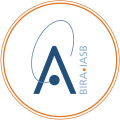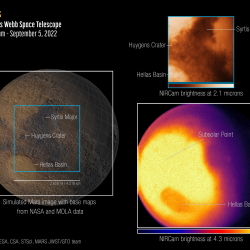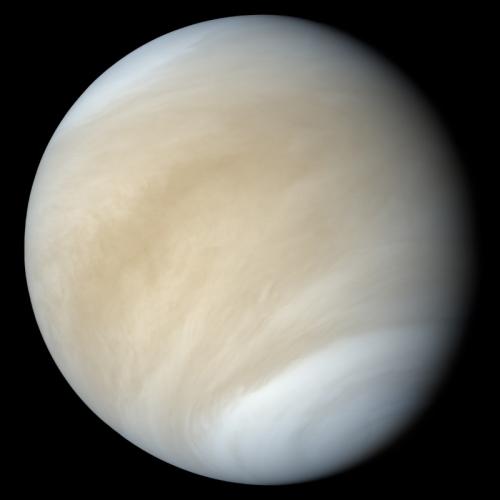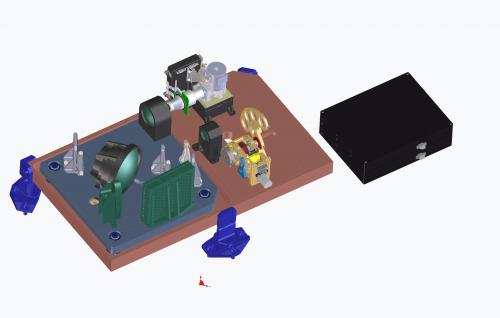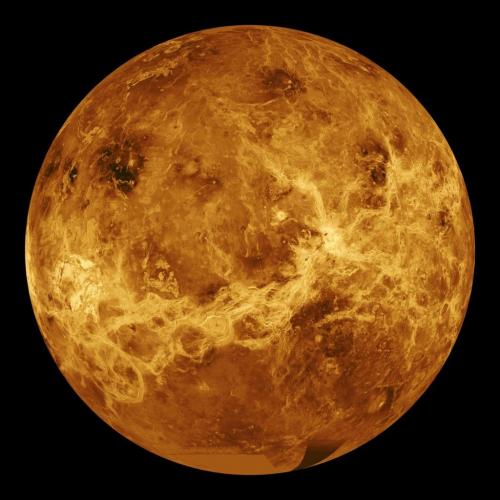The Royal Belgian Institute for Space Aeronomy is working on a future ESA mission to Venus, called EnVision. The spacecraft is currently scheduled for launch in 2032, and its aim will be to investigate the geological characteristics and activity of Venus, as well as their influence on the planet’s atmosphere. This could help us understand why Venus and Earth evolved so differently.
EnVision and VenSpec-H
EnVision is one of three ESA M5 candidate missions, together with Theseus (gamma- and X-ray exploration of the early universe) and Spica (cosmology and astrophysics). These three missions, which are currently in a study phase (Phase A), are in competition with each other. This means that only one of them will pass the study phase, a decision that will be taken in March 2021.
BIRA-IASB has initiated the VenSpec-H instrument, a high spectral resolution infrared spectrometer planned for the EnVision mission. Together with VenSpec-M (managed by DLR, Berlin, Germany) and VenSpec-U (managed by LATMOS, Paris, France), it forms the VenSpec suite. These instruments are highly complementary, contributing to the study of the atmospheric composition of Venus from its surface to its cloud layer. BIRA-IASB is leading the consortium for the VenSpec-H instrument, building on the success of our NOMAD instrument, which is currently on board the ExoMars Trace Gas Orbiter.
Our goal with VenSpec-H is to understand the intrinsic atmospheric variability, and to establish the role of interactions between the atmosphere and the surface or subsurface. Many of the most variable atmospheric species on Venus - SO2, SO, H2O, CO, COS, H2SO4 - are associated with volcanic emissions on Earth.
Mission status
A halfway review (Mission Consolidation Review) has been held for EnVision. The Belgian consortium formed by BIRA-IASB and OIP, the industrial partner in this project, has delivered a large set of documents and design files to the European Space Agency (ESA). After these documents were reviewed in detail by ESA, the consortium successfully responded to multiple questions and comments. The same was true for all the partners involved in the mission, so that EnVision can now move on to the next stage! It’s another step towards a possible selection.
BIRA-IASB and OIP will now continue their work for the final phase A review, taking place at the beginning of 2021. The remaining tasks mainly consist in refining the preliminary designs, both mechanical and electronic, and to build a thermo-mechanical prototype of the VenSpec-H instrument.
In parallel to the pre-design of the payload instruments of EnVision, the spacecraft itself is under design. This is carried out by two prime industrial partners in competition, namely Airbus (UK) and Thales-Alenia Space (France).
